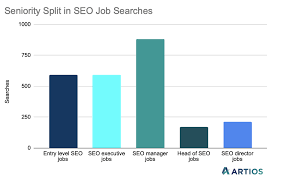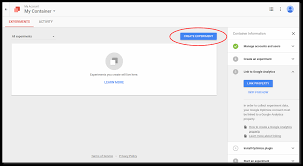Unlocking Success: The Dynamic Duo of SEO and Analytics
The Synergy Between SEO and Analytics
In the digital landscape, Search Engine Optimization (SEO) and Analytics are two powerful tools that, when used in tandem, can significantly enhance a website’s performance. SEO focuses on improving a site’s visibility in search engine results, while Analytics provides valuable insights into user behaviour and website performance. Let’s delve into how these two disciplines work together to drive success online.
Understanding SEO
SEO is the practice of optimising a website to rank higher in search engine results pages (SERPs). By implementing various strategies such as keyword research, on-page optimisation, link building, and content creation, websites can attract more organic traffic and reach a wider audience. SEO aims to improve not only visibility but also user experience and conversion rates.
The Role of Analytics
Analytics tools like Google Analytics provide website owners with detailed data on visitor behaviour, traffic sources, conversion rates, and more. By analysing this data, businesses can gain valuable insights into how users interact with their site, which pages perform well, and where improvements are needed. Analytics helps in measuring the effectiveness of SEO efforts and identifying areas for enhancement.
The Synergy Between SEO and Analytics
When SEO and Analytics are integrated effectively, businesses can unlock a wealth of opportunities for growth. By tracking key metrics such as organic traffic, bounce rates, click-through rates, and keyword performance through Analytics tools, businesses can assess the impact of their SEO strategies in real-time. This data-driven approach allows for informed decision-making and continuous improvement.
Benefits of Integrating SEO with Analytics
– Enhanced Visibility: By analysing search data through Analytics tools, businesses can identify high-performing keywords and optimise their content accordingly to improve search rankings.
– Improved User Experience: Analytics data reveals user behaviour patterns that can help businesses tailor their website content to meet user expectations and enhance overall user experience.
– Targeted Marketing: By understanding audience demographics and preferences through Analytics insights, businesses can create targeted marketing campaigns that resonate with their target audience.
– Measurable Results: Integrating SEO with Analytics allows businesses to track the performance of their SEO efforts accurately and measure the return on investment (ROI) of their digital marketing campaigns.
Conclusion
The synergy between SEO and Analytics is essential for any business looking to succeed online. By combining the power of search engine optimisation with data-driven insights from analytics tools, businesses can create a winning digital strategy that drives traffic, boosts conversions, and maximises ROI. Embracing this synergy will not only improve online visibility but also pave the way for sustained growth in the competitive digital landscape.
Top 8 SEO and Analytics Tips for Boosting Your Website’s Performance
- Conduct thorough keyword research to identify terms your target audience is searching for.
- Optimise your website’s loading speed to improve user experience and search engine rankings.
- Create high-quality, engaging content that provides value to your visitors and encourages them to stay on your site longer.
- Use descriptive, keyword-rich meta titles and descriptions to help search engines understand the content of your pages.
- Implement responsive design to ensure your website is accessible and easy to navigate on all devices.
- Regularly monitor and analyse your website’s performance using tools like Google Analytics to identify areas for improvement.
- Build a strong backlink profile by earning links from reputable websites in your industry.
- Utilise social media platforms to promote your content and drive traffic back to your website.
Conduct thorough keyword research to identify terms your target audience is searching for.
To maximise the effectiveness of your SEO strategy and leverage the power of analytics, it is crucial to conduct thorough keyword research to pinpoint the specific terms and phrases that resonate with your target audience. By identifying the keywords your audience is actively searching for, you can tailor your content and optimise your website to align with their interests and needs. This strategic approach not only enhances your visibility in search engine results but also ensures that you are delivering relevant and valuable content that attracts and engages your desired demographic.
Optimise your website’s loading speed to improve user experience and search engine rankings.
Optimising your website’s loading speed is a crucial tip in SEO and Analytics. A faster loading website not only enhances user experience by providing visitors with quick access to content but also plays a significant role in improving search engine rankings. Search engines like Google consider page speed as a ranking factor, prioritising websites that load quickly for better user satisfaction. By focusing on improving your website’s loading speed, you can create a more seamless browsing experience for users while also boosting your visibility in search engine results pages.
Create high-quality, engaging content that provides value to your visitors and encourages them to stay on your site longer.
Creating high-quality, engaging content that offers genuine value to your visitors is a crucial tip for boosting SEO and leveraging analytics effectively. Compelling content not only attracts users to your site but also entices them to stay longer, reducing bounce rates and increasing engagement metrics. By crafting informative and relevant content that resonates with your audience, you not only enhance your site’s visibility in search results but also generate valuable data insights through analytics on user behaviour and preferences. This strategic approach not only improves SEO performance but also fosters a positive user experience, ultimately leading to increased traffic, conversions, and overall online success.
Use descriptive, keyword-rich meta titles and descriptions to help search engines understand the content of your pages.
Utilising descriptive and keyword-rich meta titles and descriptions is a crucial tip in SEO and Analytics. By crafting compelling meta tags that accurately reflect the content of your web pages, you not only enhance user engagement but also provide search engines with valuable information to index and rank your site effectively. These meta tags serve as a preview snippet for users in search engine results, influencing their decision to click through to your website. Incorporating relevant keywords in your meta titles and descriptions can significantly improve your site’s visibility and click-through rates, ultimately driving organic traffic and boosting your online presence.
Implement responsive design to ensure your website is accessible and easy to navigate on all devices.
By implementing responsive design on your website, you can enhance its accessibility and user experience across all devices. A responsive design ensures that your site adapts seamlessly to different screen sizes and resolutions, making it easy to navigate on desktops, laptops, tablets, and smartphones. This not only improves user engagement but also positively impacts your SEO efforts by providing a consistent and user-friendly experience that search engines value. Responsive design is a fundamental aspect of modern web development that helps ensure your website remains competitive in the ever-evolving digital landscape.
Regularly monitor and analyse your website’s performance using tools like Google Analytics to identify areas for improvement.
Regularly monitoring and analysing your website’s performance using tools like Google Analytics is a crucial tip for effective SEO and analytics integration. By tracking key metrics such as traffic sources, user engagement, and conversion rates, businesses can gain valuable insights into how their website is performing. This data-driven approach enables businesses to identify areas for improvement, refine their SEO strategies, and enhance the overall user experience. Continuous monitoring and analysis ensure that businesses stay informed about their website’s performance and can make informed decisions to optimise their online presence effectively.
Build a strong backlink profile by earning links from reputable websites in your industry.
To enhance your website’s SEO performance and leverage the power of analytics effectively, it is crucial to focus on building a robust backlink profile. By earning links from reputable websites within your industry, you not only improve your site’s credibility and authority but also increase its visibility in search engine results. These quality backlinks serve as a vote of confidence from trusted sources, signalling to search engines that your content is valuable and relevant. By strategically acquiring backlinks from industry leaders and influencers, you can strengthen your SEO efforts and drive organic traffic to your website, while also gaining valuable insights through analytics to measure the impact of these links on your overall digital strategy.
Utilise social media platforms to promote your content and drive traffic back to your website.
To maximise the impact of your SEO efforts and leverage the insights gained from analytics, it is crucial to utilise social media platforms effectively. By promoting your content across social media channels, you can reach a wider audience, increase brand visibility, and drive traffic back to your website. Engaging with users on platforms like Facebook, Twitter, Instagram, and LinkedIn not only boosts your online presence but also provides valuable data that can be analysed through analytics tools to refine your digital marketing strategies further. Integrating social media promotion with SEO and analytics creates a holistic approach that enhances both visibility and engagement for sustainable online success.





